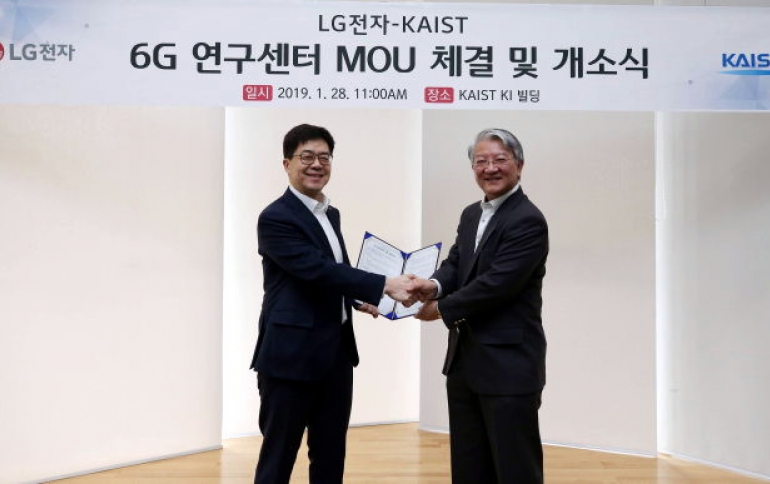
LG Opens 6G Labs at KAIST
LG Electronics announced on Monday a research and development plan for the sixth generation (6G) telecommunications network technologies in order to lead the future market.
LG opened a 6G research center within KAIST Institute, a research organization for technologies for the country’s economic development run by the Korea Advanced Institute of Technology in Daejeon Metropolitan City, which will be headed by Cho Dong-ho, professor of electrical engineering at KAIST.
The institute and LG will conduct joint projects on new technologies that connect 5G and 6G in a bid to move faster than competitors into the 6G market.
“LG will enhance research on telecom network technologies to be able to lead global standardizations for the sixth-generation network,” said Park Il-pyung, chief technology officer of LG.
The new center’s head Cho Dong-ho said, “It is significant that LG and KI take one step towards the network technologies for 10 years afterwards, which will be helpful to preparing for future industries.”
5G promises far faster speeds for mobile phones and its reduction of the latency, or delay, inherent in most existing networks is critical for real time integration between humans and machines. The upcoming 6G aims to integrate satellites for global coverage to provide far high data rates and faster Internet speeds than 5G, according to the International Research Journal of Engineering and Technology.
LG topped the number of patents on LTE and LTE-Advanced technologies from 2012 through 2016, according to market researcher TechIPM.
LG Uplus, the telecom affiliate of LG Electronics, launched the 4G mobile services ahead of bigger players SK Telecom and KT in 2011.
On the 5G network, LG has been focusing particularly on automotive communications technologies by teaming up with Qualcomm to develop Cellular Vehicle-to-Everything technologies, known as C-V2X, which will help deliver data at the speeds necessary in a real life driving situation.
Following the initial launch of the world's first 5G network in December, South Korea's three leading mobile carriers have been building infrastructure for the 5G network to support new mobile devices, autonomous vehicles and smart factories and cities.





















